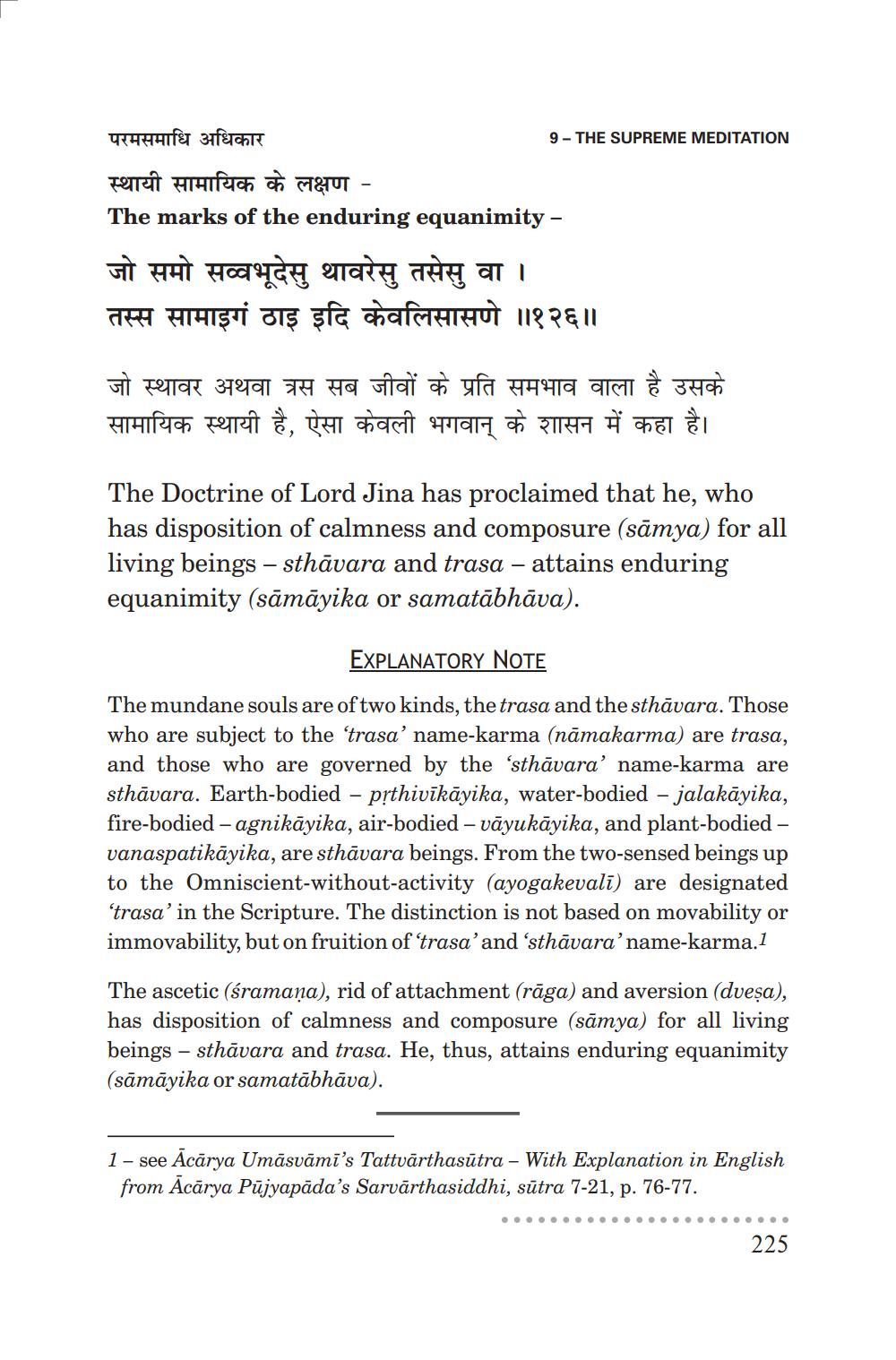________________
परमसमाधि अधिकार
9 - THE SUPREME MEDITATION
स्थायी सामायिक के लक्षण - The marks of the enduring equanimity - जो समो सव्वभूदेसु थावरेसु तसेसु वा । तस्स सामाइगं ठाइ इदि केवलिसासणे ॥१२६॥
जो स्थावर अथवा त्रस सब जीवों के प्रति समभाव वाला है उसके सामायिक स्थायी है, ऐसा केवली भगवान् के शासन में कहा है।
The Doctrine of Lord Jina has proclaimed that he, who has disposition of calmness and composure (sāmya) for all living beings – sthāvara and trasa – attains enduring equanimity (sāmāyika or samatābhāva).
EXPLANATORY NOTE
The mundane souls are of two kinds, the trasa and the sthāvara. Those who are subject to the 'trasa' name-karma (namakarma) are trasa, and those who are governed by the 'sthāvara' name-karma are sthāvara. Earth-bodied - pythivīkāyika, water-bodied - jalakāyika, fire-bodied - agnikāyika, air-bodied - vāyukāyika, and plant-bodied - vanaspatikāyika, are sthāvara beings. From the two-sensed beings up to the Omniscient-without-activity (ayogakevalī) are designated 'trasa’in the Scripture. The distinction is not based on movability or immovability, but on fruition of 'trasa'and 'sthāvara'name-karma.1
The ascetic (śramana), rid of attachment (rāga) and aversion (dvesa), has disposition of calmness and composure (sāmya) for all living beings – sthāvara and trasa. He, thus, attains enduring equanimity (sāmāyika or samatābhāva).
1 - see Acārya Umāsvāmi's Tattvārthasūtra – With Explanation in English from Acārya Pujyapāda's Sarvārthasiddhi, sūtra 7-21, p. 76-77.
225




